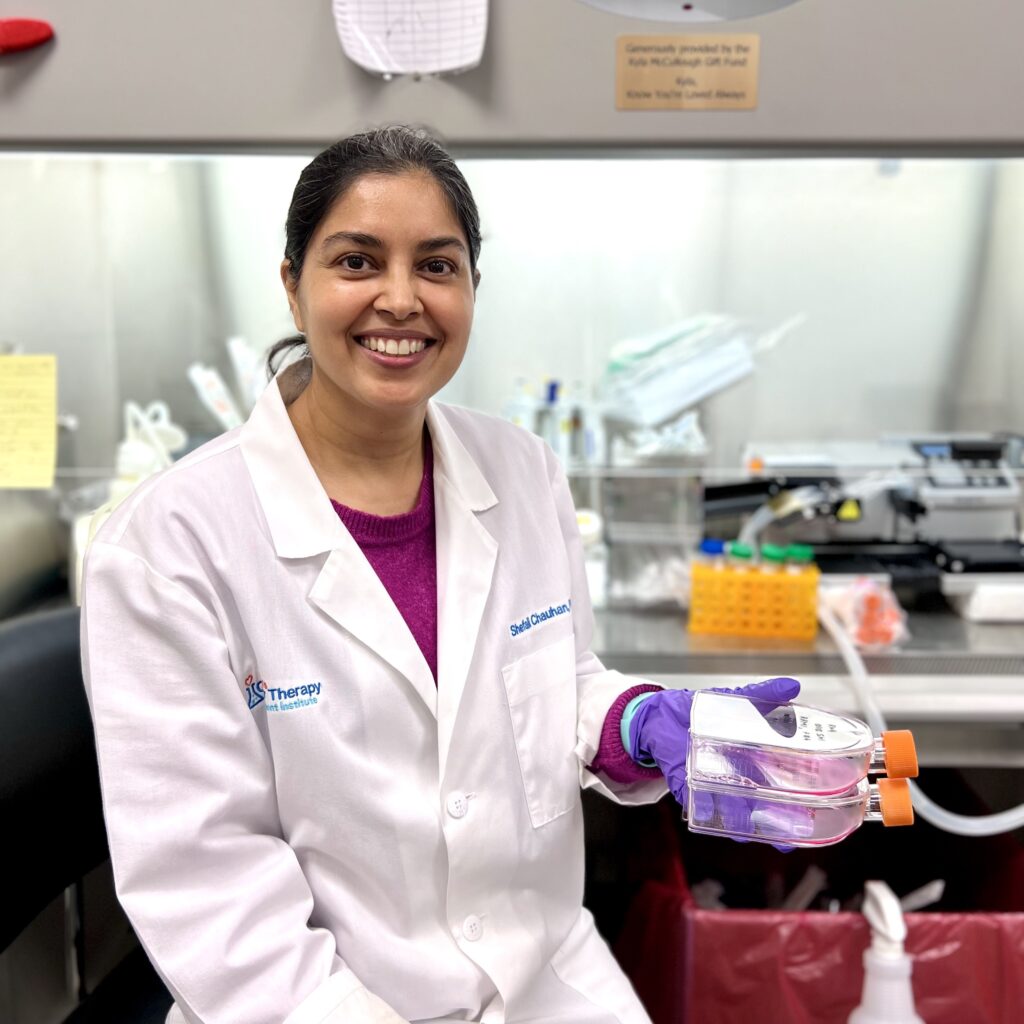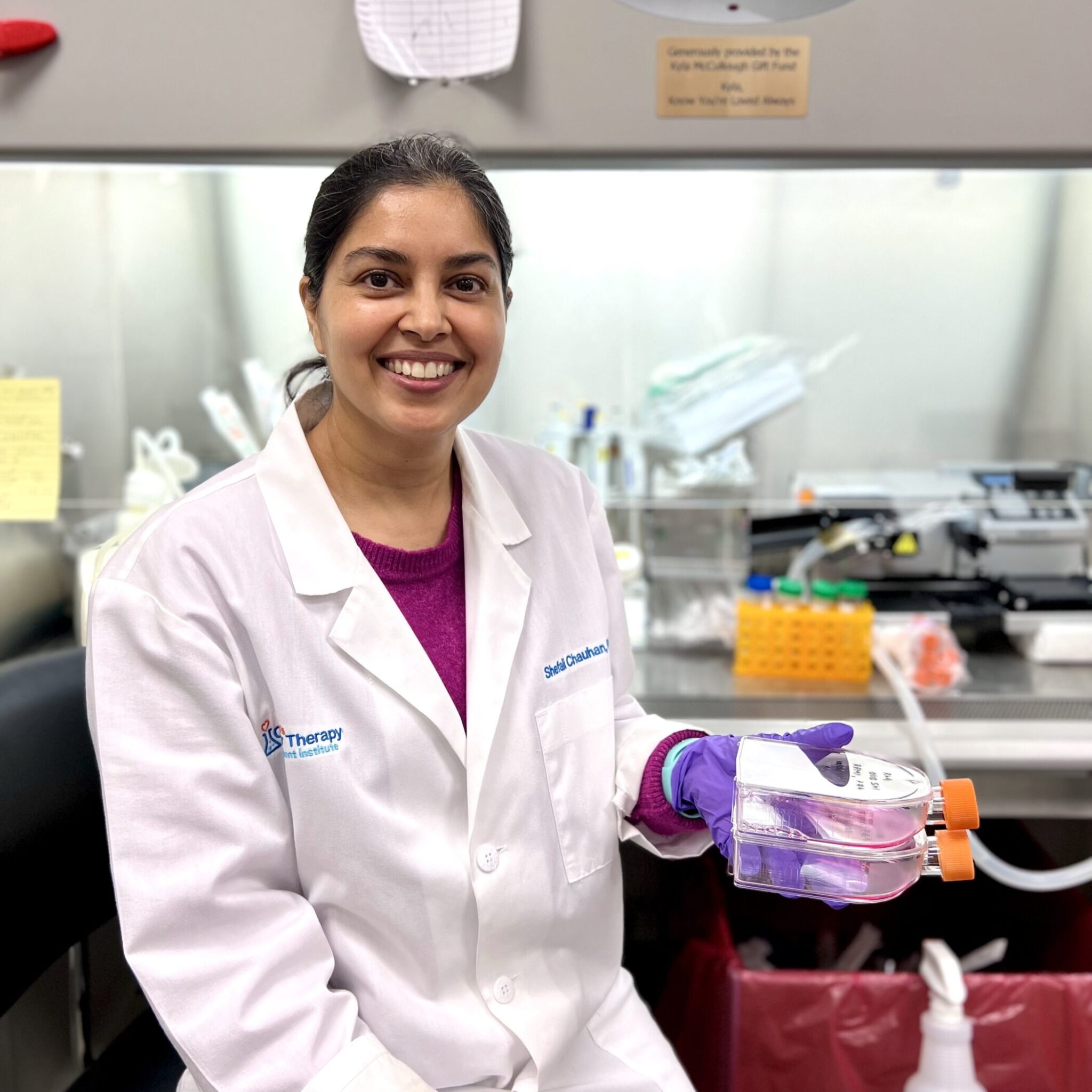We are excited to update you on entinostat, a therapy that’s traveled through cc-TDI’s development pipeline in the fight against rhabdomyosarcoma (RMS).
Entinostat is a breast cancer drug designed to inhibit an enzyme called HDAC3. Alveolar rhabdomyosarcoma (ARMS) uses HDAC3 to maintain expression of a unique and deadly protein, PAX3::FOXO1. When entinostat turns off PAX3::FOXO1, chemotherapy can work better and outcomes for patients could be significantly improved.
cc-TDI’s Senior Research Scientist, Dr. Shefali Chauhan, has been integral to the entinostat journey. A biochemist by training, Dr. Chauhan brings extensive knowledge in molecular biology and biochemistry to cc-TDI’s team. Her academic journey, spanning from India to Oregon Health & Science University, culminated in a Ph.D. where she explored the kinetics of copper-containing metalloenzymes.

Dr. Chauhan continues to play a crucial role in our entinostat in vitro testing. This process has involved doing a “bake off” for drugs active for alveolar rhabdomyosarcoma (ARMS). ARMS is characterized by the presence of the PAX::FOXO1 fusion protein, and this protein makes chemotherapy work less well. Published work from cc-TDI indicates that entinostat indirectly lowers the synthesis of PAX::FOXO1, thereby reducing chemotherapy resistance (and thus enhancing the effectiveness of chemotherapy on tumor growth). The takehome of Shefali’s current research is that Entinostat is equally or more effective than comparable medicines to lower PAX::FOXO1 protein levels.
Entinostat has been in cc-TDI’s research and development pipeline for nearly 8 years. In 2020, Megan Bugg’s tireless efforts and advocacy played a pivotal role in funding cc-TDI’s initial work on entinostat leading to a Children’s Oncology Group phase 1 clinical trial. As we progress through clinical trial phases, we are fortunate to have the unwavering support of the Megan’s Mission Foundation, which continues to be our steadfast partner – just this year contributing $50,000 specifically to push entinostat’s development Currently, entinostat is being developed for Phase 2 Clinical Trials, with the chance to improve outcomes for children, teens and young adults with ARMS around the world!
The journey towards making childhood cancer universally survivable truly is a collective effort and your contribution plays a vital role in propelling our research forward. Please join us in making a gift and providing science-justified hope through research today!


